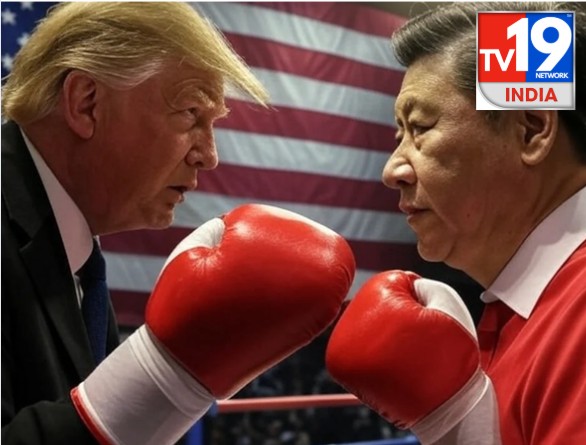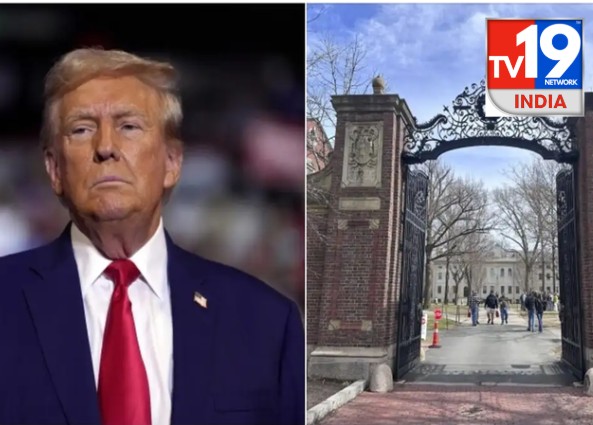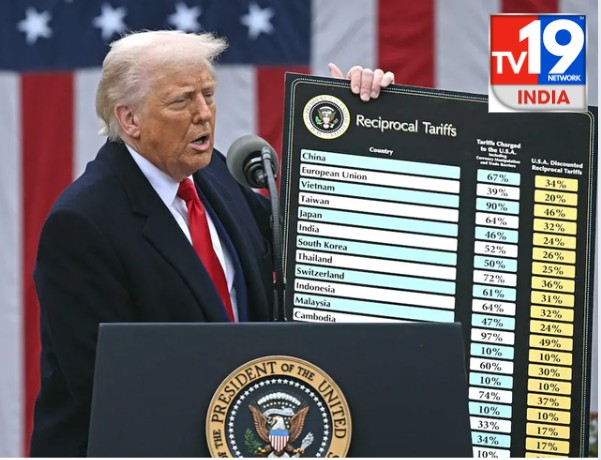China Retaliates with Sharp Tariff Hike on US Goods Amid Escalating Trade Tensions
Beijing: In a significant escalation of the ongoing trade war between the world’s two largest economies, China on Friday retaliated against U.S. President Donald Trump’s latest wave of tariffs by sharply raising its levies on American goods. The Chinese Finance Ministry announced that tariffs on U.S. imports will now rise to 125% from the previous 84%.
The move comes in response to the Trump administration’s recent executive order that increased tariffs on Chinese goods to a combined effective rate of 145%. This includes the latest 125% hike, along with a prior 20% tariff targeting fentanyl-related imports imposed earlier in February and March.
In a strongly worded statement, the Chinese Finance Ministry criticized the U.S. approach, stating, “Even if the U.S. continues to impose higher tariffs, it will no longer make economic sense and will become a joke in the history of world economy.” The ministry added that current tariff levels have rendered U.S. goods uncompetitive in the Chinese market. “There is no longer a market for U.S. goods imported into China,” the statement read. It further warned that “if the U.S. government continues to increase tariffs on China, Beijing will ignore.”
The tit-for-tat measures underscore the deepening rift between Washington and Beijing, with both sides entrenching themselves in a prolonged economic standoff. The increased tariffs are expected to place further strain on global trade flows and may significantly disrupt international supply chains already reeling from geopolitical tensions and post-pandemic volatility.
“This is the end of the escalation in terms of bilateral tariff rates,” said Zhiwei Zhang, president and chief economist at Pinpoint Asset Management. “Both China and the U.S. have sent clear messages — there is no point in raising tariffs further.”
Zhang emphasized that the next critical step would be to evaluate the extent of damage these tariffs have inflicted on economic activity in both countries. However, he noted that there is currently no indication that either government is willing to return to the negotiating table to prevent a broader disruption in the global economy.
Trade analysts have expressed concerns that continued tariff hikes could backfire on domestic industries in both nations, leading to increased costs for manufacturers and consumers. In the U.S., businesses reliant on Chinese imports may face significant price pressures, while Chinese exporters could struggle with diminished access to one of their largest overseas markets.
The lack of diplomatic engagement between the two superpowers has further fueled uncertainty in financial markets, where investors are bracing for more volatility. Economists warn that if the dispute remains unresolved, it could dampen global growth prospects and weaken investor confidence.
Despite mounting pressure from international stakeholders to ease tensions and resume talks, both Beijing and Washington appear resolute in their respective positions. Trump has repeatedly defended his administration’s hardline trade strategy, framing it as a necessary step to counter what he views as China’s unfair trade practices and intellectual property violations. Meanwhile, China has maintained that it will not bow to external pressure and will defend its economic interests with equal force.
As the global community watches closely, the latest round of tariff hikes marks a new chapter in the U.S.-China trade conflict — one that could have long-lasting consequences for global commerce and economic stability.







